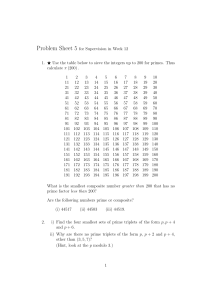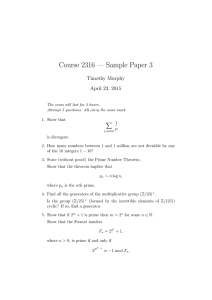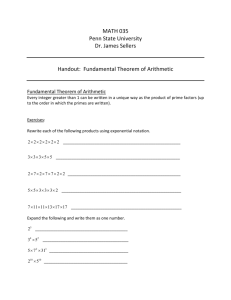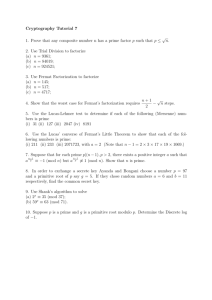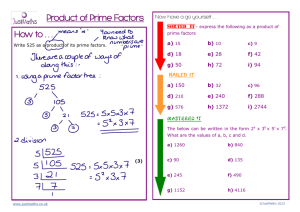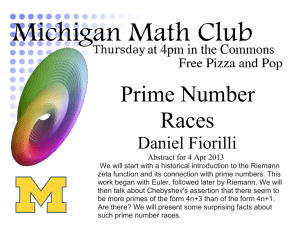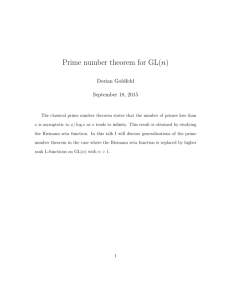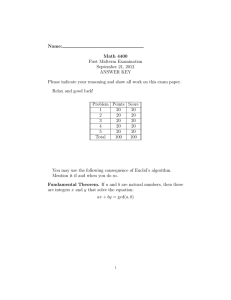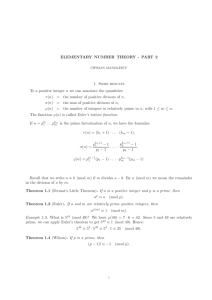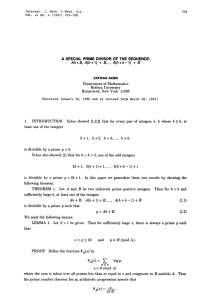Congruences If n is a natural number, a ≡ b (mod n) means that a
advertisement
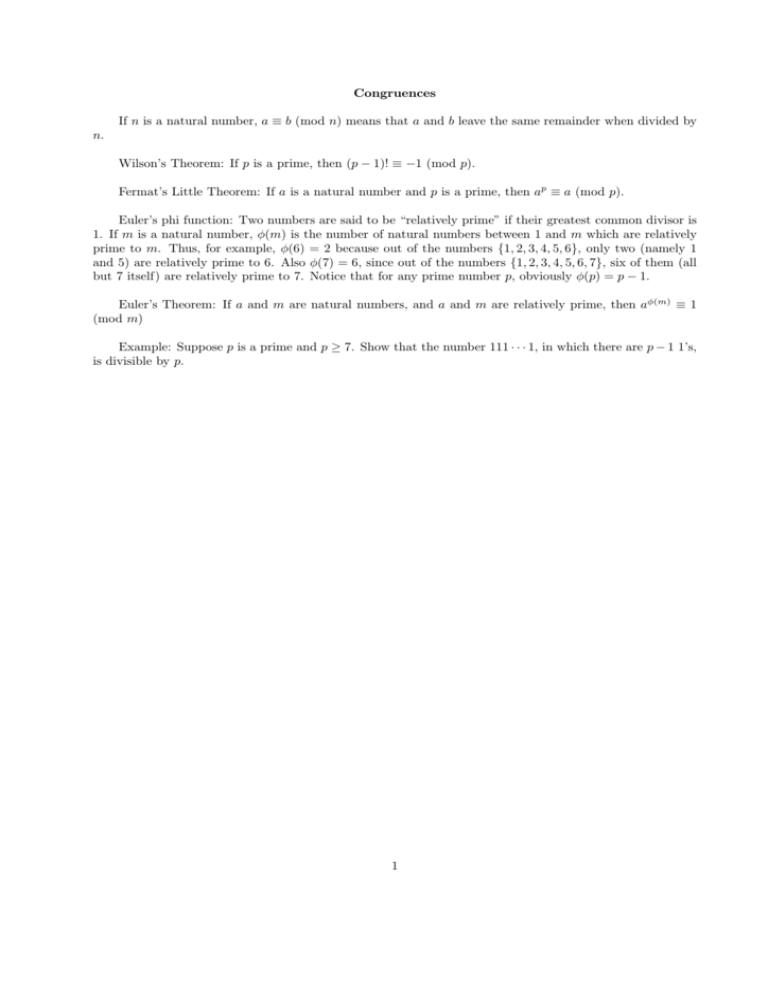
Congruences
If n is a natural number, a ≡ b (mod n) means that a and b leave the same remainder when divided by
n.
Wilson’s Theorem: If p is a prime, then (p − 1)! ≡ −1 (mod p).
Fermat’s Little Theorem: If a is a natural number and p is a prime, then ap ≡ a (mod p).
Euler’s phi function: Two numbers are said to be “relatively prime” if their greatest common divisor is
1. If m is a natural number, φ(m) is the number of natural numbers between 1 and m which are relatively
prime to m. Thus, for example, φ(6) = 2 because out of the numbers {1, 2, 3, 4, 5, 6}, only two (namely 1
and 5) are relatively prime to 6. Also φ(7) = 6, since out of the numbers {1, 2, 3, 4, 5, 6, 7}, six of them (all
but 7 itself) are relatively prime to 7. Notice that for any prime number p, obviously φ(p) = p − 1.
Euler’s Theorem: If a and m are natural numbers, and a and m are relatively prime, then aφ(m) ≡ 1
(mod m)
Example: Suppose p is a prime and p ≥ 7. Show that the number 111 · · · 1, in which there are p − 1 1’s,
is divisible by p.
1
